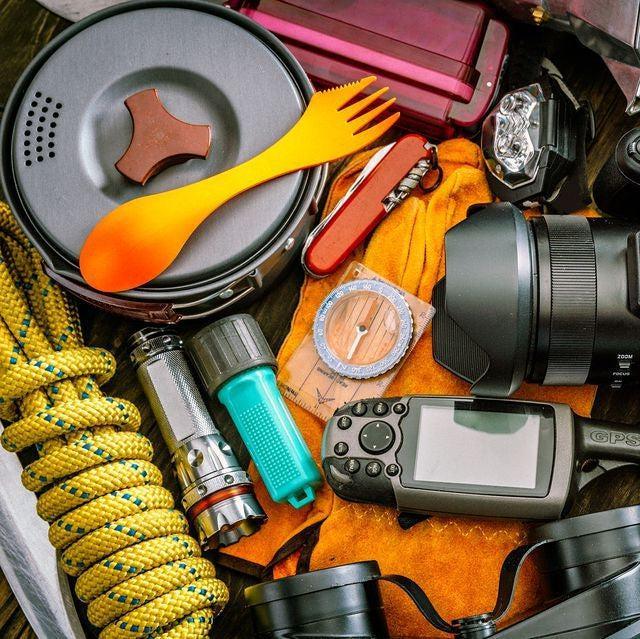
Did You Pass On These Skills To Your Sons When They Were Young?
Share
I’m not in my 20s or 30s anymore. I’m well into my 60s now, and I might have 20 years left or only a couple. What I do know is that things probably aren’t going to get any better than they are now, and I need to have my affairs in order just in case the worst happens. Part of that is working out what I want to pass on, and who to.
Most American families have a few heirlooms, and they’re usually treasured items. They might be sentimental, practical or a bit of both. They can range from a watch or locket to a dresser or boat, maybe even a house, but whatever they are they carry a little bit of family history with them.
Maybe more importantly, families can also pass on knowledge. The classic example is family recipes – most of us have a couple of those. It seems that we don’t teach our kids as much as we used to, though.
Too many of us leave all that to others, and that’s a pity. Not all useful knowledge comes out of a schoolbook, and we might be depriving our kids of skills that would really help them.
When I was a kid I remember following my dad around the house as he did odd jobs, always asking questions.
“Dad, why do you have two different hammers? Why do you sometimes use screws, and other times use nails? What happens if I lift one end of the drywall?”
I’m sure I annoyed the hell out of him, but he was always patient and explained what he was doing (except when I broke the drywall). I learned a lot from that, and when I started doing my own home improvements it always felt like Dad was standing beside me with helpful advice.
I’ve been thinking about that recently, and wondering if I’ve taught my sons all the lessons I have for them. Overall I think I’ve done a pretty good job. Sure, there’s always more to teach, but I’ve probably given them the knowledge they need to get through pretty much anything they’re faced with. How about you? Have you taught your sons these key skills?
Build a Fire
Take your kids camping – or just for some walks – and show them how to build and light a fire. It’s a fun thing to do together, and once it’s lit you can all sit round it, toast some marshmallows or make s’mores, and tell a few stories.
Of course, fire is also a survival necessity. Get caught outdoors in bad weather and you’re not going to make it unless you can generate some heat for yourself.
Spend a Night Outdoors
There are a lot of skills you can teach on a camping trip, but how to put up a tent – or, even better, build a shelter from natural materials – is one of the most valuable.
Do the Laundry
If you can’t look after yourself, you can’t be independent. Doing the laundry is a skill any independent man needs. In the best of times you need clean, pressed clothes to make a good impression. In a crisis, clean clothes are much better at keeping you warm and dry than dirty ones are.
Be a Good Loser
You aren’t always going to succeed in life. Sometimes things just aren’t going to go your way, and you need to be able to accept that and move on.
Teach your kids games that will encourage them to try their best, but stay on balance when their best isn’t quite good enough.
Drive a Nail
Boys like banging nails into things. Teach them to do a good, neat job, and to select the right nail for what they’re trying to do.
If they can do that they’ll be able to build and repair a lot of what they need to get through any disaster situation.
Use a Saw
Nailing bits of wood together is great – if the bits are the right size for what you’re doing. If you can use a saw, you can cut them to the right size.
Grow Things
Giving your kids their own vegetable plot is a good way to teach them that growing things takes care and effort.
The novelty of seeing their own plants grow will generate interest, and eating something they grew themselves gives a sense of achievement. Along the way they’ll learn skills that will help them be self-sufficient if necessary.
Paint a Fence
Re-enact the classic scene from Tom Sawyer with your son, and along the way teach him to wield a paintbrush effectively. Paint doesn’t just make wood look better; it helps protect it from the elements.
Tie Some Knots
Teach a boy how to tie knots and there’s all sorts of stuff he can make. Rafts, treehouses, hammocks and plenty of other things will benefit from knowledge of a few simple knots.
Later in life the same knots have a load of more practical uses – especially in a crisis.
Use a Shovel
Digging isn’t a glamorous skill, but it’s a useful one. Turning over soil in a vegetable plot is one thing, but shifting a few cubic yards of earth for a latrine, foxhole or ditch is another.
Get your kids used to digging, and when they need to do it they’ll save a lot of time and sweat.
Appreciate Books
Kids these days seem to spend all their time with their eyes glued to a screen. In any kind of major crisis all those screens are going to become useless pretty quickly; even if an EMP doesn’t fry all the devices, the internet that feeds them data will go down.
Books, on the other hand, just work. Teach your kids to value the solidity and permanence of a real book.
Handle a Gun
Firearms are a key part of being prepared for the worst – but they’re a double-edged sword that can draw a careless user’s own blood very easily. Teach your kids to respect firearms from a young age.
Make sure that, before they lay as much as a finger on one, they thoroughly understand the basic rules – assume every gun is loaded until you’ve checked, never point a gun at anything you’re not willing to destroy, and so on.
Teach them to take pride in shooting safely and accurately. They’ll never become accident statistics, and they’ll be able to use firearms effectively when they need to.



